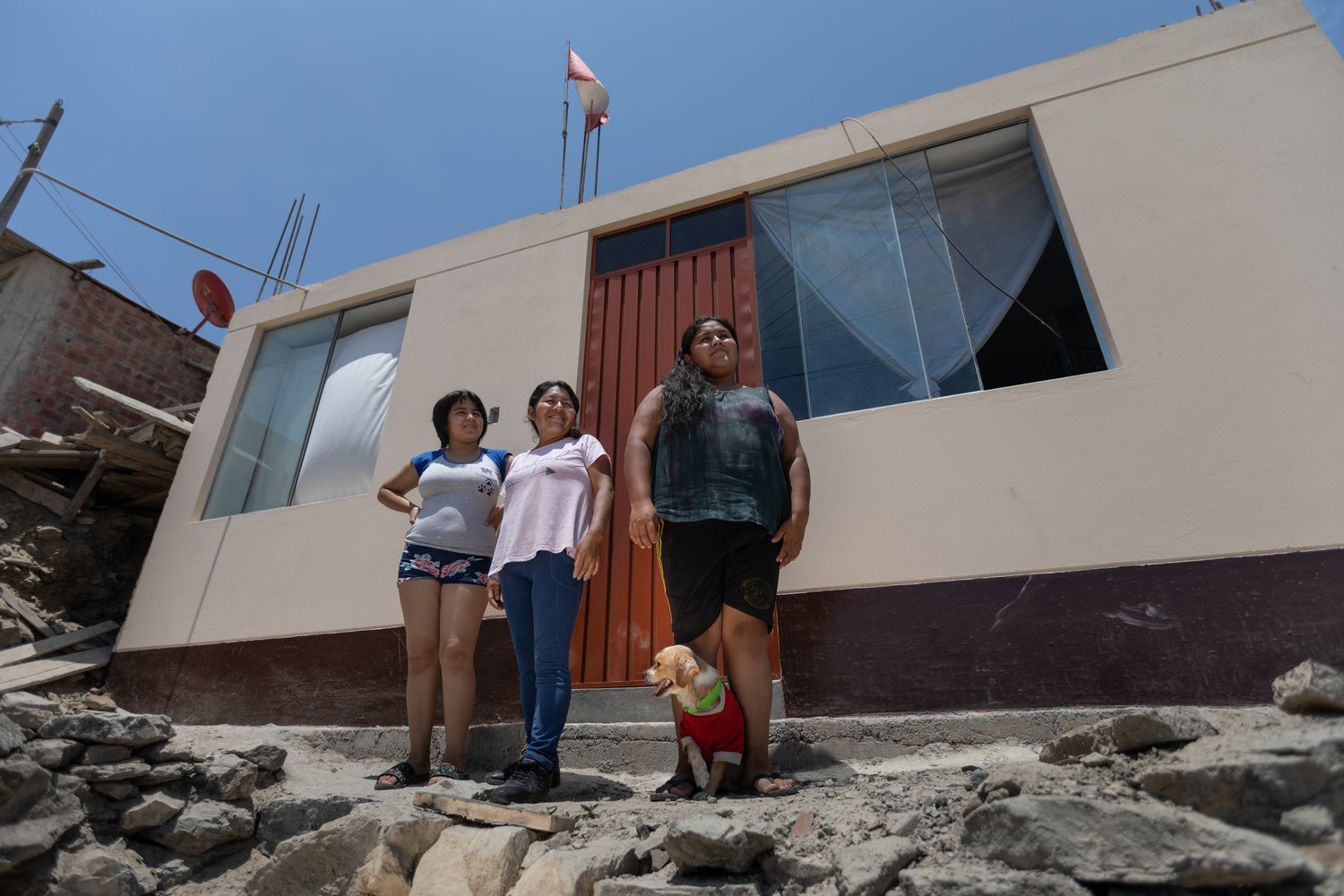Affordable Housing: Laying the Foundation for a Better Future
Inadequate housing is more than just a deficit—it’s a barrier to safety, health, and economic progress, trapping countless families in a relentless cycle of poverty with higher exposure to violence and limited future perspectives for their children. The Hilti Foundation is on a mission to break this cycle through innovative technologies, sustainable building practices, and through working on solutions to solve the problem holistically.
In 2023, Melinda Sasfi brought her entrepreneurial skill set and her experience from the construction industry gained at the Hilti Group to the foundation. Now, she is putting her passion into making adequate, affordable housing a reality, especially in the Global South, where the need is urgent, and the impact of the investments can be transformative.
Navigating challenges to create sustainable change
The global housing deficit is a crisis that demands urgent action. Today, 1.6 billion people live in inadequate housing, a number projected by the World Bank to almost double by 2030 and a problem that will affect all our lives, even when living in developed countries. Addressing this crisis requires investment, long-term commitment, and innovation, yet it often lacks the attention it deserves. In the Global South, the situation is especially critical, with scarce competencies and resources, complex legal barriers, and unstable political situations adding to the challenge.
From corporate to foundation
Drawing on her corporate experience, Melinda is now fully committed to the foundation’s systemic approach to addressing housing inequality. She is crafting a direction, providing pragmatic leadership, and connecting stakeholders to drive meaningful change.
“Joining the Hilti Foundation has allowed me to contribute to solving one of the world's greatest challenges while building on my corporate experience and making a tangible impact,” she says.
Melinda employs a range of strategies to enhance productivity, including diagnostics, standardizing production through prefabrication, and implementing capacity-building programs and specialist training. Yet, she stresses that the most crucial aspect is keeping the beneficiaries’ perspectives at the forefront, ensuring that solutions truly serve the needs of the families.
Strategic problem-solving
Melinda has significantly contributed to the foundation by reinforcing the systemic approach applied by the Hilti Group. She emphasizes the importance of applying analysis, identifying key gaps, and bringing together the right partners to address challenges collectively.
“It goes beyond generating profit through our initiatives, it is about positively influencing the construction industry that leads to safer and adequate homes for everyone,” she explains, underscoring the foundation’s mission to improve the housing situation by building faster, using fewer resources, and achieving higher quality and safety.
The power of joint effort
Purpose-driven collaboration is central to our strategy for achieving sustainable impact. Despite being a small team, we’re driving projects with systemic thinking and leveraging extensive networks, to bring about significant change. By partnering with local communities, governments, and global organizations, we act as an enabler, bringing together key players to solve challenges collectively. This approach, allows us to generate sustainable, systemic change in the housing sector.
Shaping the future of construction for global good
Our foundation is deeply committed to quality, innovation, and efficiency in the affordable housing sector. By focusing on sustainable, collaborative solutions, it plays a crucial role in addressing the sector’s challenges, with a commitment that goes beyond financial interests to drive positive, impactful change. As Melinda puts it:
“We aim to understand and contribute to finding the right solutions. Making things happen. This is how we work, and we always have.”
Affordable Housing & Technology
Adequate housing is a human right and, above all, a prerequisite for social and economic development. According to the World Bank, 3 billion people are expected to live in substandard housing by 2030. This not only has a significant impact on the safety and health of the inhabitants, but also on their economic opportunities and social inclusion. By developing innovative technologies and sustainable building concepts, the Hilti Foundation is helping to create safe and affordable housing that can serve as a starting point for a better life for people in need.
About Melinda Sasfi
Melinda holds a CEMS master’s degree in international management. She joined Hilti in 2016 as a Global Management Trainee and started as an account manager in MO Hungary. She then took on various project management roles in Hungary, Moscow, and Germany. After her Regional Manager position in Germany, she moved to Corporate Development in 2021, joining the team that led the development of the LEAD 2030 strategy project. In 2023, she moved to the Hilti Foundation, where she is now managing projects in the Affordable Housing and Technology focus area.

